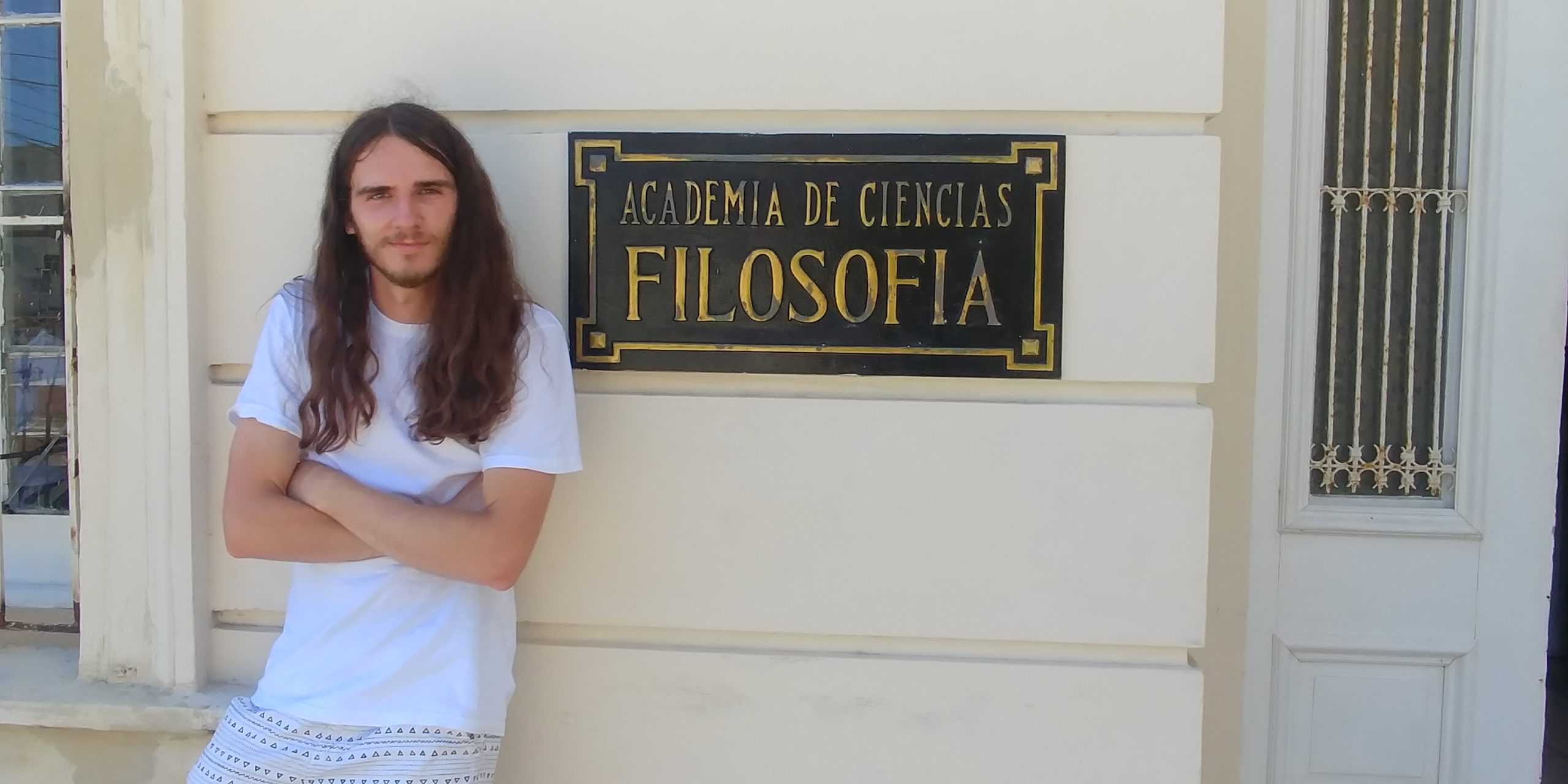Gilman Scholar studies Latin American politics in once-in-a-lifetime trip to Cuba
When Ryan Bourgoin chose a location to study abroad, popular study abroad options for American college students like Italy, France, and Great Britain were the farthest thing from his mind.
Instead, the University of Arkansas at Little Rock junior political science major was interested in studying Latin American politics and wanted to travel to a country where he would be immersed in a very different culture.
“I’m glad that I went to Cuba of all places and not a western European country,” said Bourgoin, of Sherwood. “I wanted a study abroad experience that would be very different from what I was used to at home. There was a lot more to be learned in a country like Cuba that has only recently opened up relations with the U.S. and transitioned out of the Castro era.”
Bourgoin, one of three UA Little Rock recipients of the U.S. Department of State’s Benjamin A. Gilman International Scholarship, spent seven weeks this summer living with a host family in Vedado, a neighborhood in Havana’s business district, through USAC’s La Habana (Havana) study abroad program. He took courses at The Instituto de Filosofia and studied government and politics in Latin American and Latin American social revolutions.
“These classes really helped me get some needed credits to help complete my major,” Bourgoin said. “Latin American politics is an area where I was not very knowledgeable. I learned how interrelated the politics of the U.S. and Latin America are. You can’t talk about anything that happened in Latin America since the 19th century without talking about America.”
Bourgoin said it was an interesting experience to be an American living in Cuba. Even though the U.S. and Cuba have different political ideologies, the people he met with friendly and caring, yet frank.
“There is still a mentality that this a political problem between governments and not people, so Cubans can treat Americans well. They are a very generous people,” he said. “It’s a very strange paradox. Cuba tries to show that they are standing up to America, but they also are interested in American products and tourism for the economic boon.”
Studying abroad in a non-English speaking country not only gave Bourgoin the opportunity to improve his Spanish skills, but he also gained a new perspective on life.

“It’s very interesting to be the minority in a country that conflicts with America in a lot of its core values,” he said. “Although I’ll never truly understand the struggles that people of color face in America, I think it helps me to see the perspective of what immigrants go through in this country and get a perspective on what it is like to not be in the majority.”
As part of the program, he also took a one-week tour of southern Cuba to visit historic sites such as Playa Girón (one of two landing sites for seaborne forces of about 1,500 armed Cuban exiles during the Bay of Pigs Invasion), the colonial city of Trinidad, and the Ernesto “Che” Guevara Mausoleum, who was a major figure of the Cuban Revolution.
“Che Guevara’s mausoleum is like visiting the Tomb of the Unknown Soldier in America,” Bourgain said. “They take it very seriously. A lot of the older people in Cuba are still big fans of Castro, but many of the younger people thought the Castro brothers were cowards.”
His trip to Cuba has inspired some potential research projects. As a Donaghey Scholar, Bourgoin will complete a year-long final project next year before he graduates. He’s interested in studying the changes Cuba underwent after the Castros’ departure from power or the effects of the U.S. embargo against Cuba.
After Bourgoin graduates in May 2021, he plans to continue to travel internationally, perhaps by working as an international teacher or joining the Peace Corps, and to continue to develop his career as a writer. In the end, Bourgoin said the opportunity to learn more about the residents of Cuba was the most rewarding part of his study abroad experience.
“I also enjoyed meeting the Cubans and getting to know what they thought of their country, other countries, and life in general,” he said. “Several of the Cubans told me that the only good things about Cuba was the free healthcare and education, but even though they don’t have a lot, that they find enjoyment in being able to walk around without worrying much about violent crime. The streets are very safe. There was also another perspective: We don’t have a whole lot here, but we have enough to share, so how could you want more?”
